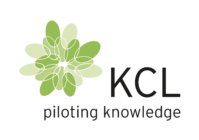Introduction
Barrier coatings are a game-changer in packaging, enhancing product protection and extending shelf life. These coatings offer a vital solution to maintain product quality by safeguarding against environmental factors. But how exactly do they work, and what are the broader implications for industries and sustainability?
What are barrier coatings and how do they work?
Barrier coatings are specialized materials applied to packaging surfaces to protect contents from environmental factors like moisture, oxygen, and ultraviolet (UV) light. These coatings typically consist of thin layers of polymers or bio-based materials designed to create a protective shield around the product.
The mechanism of barrier coatings involves blocking or slowing down the passage of gases and vapors. This is achieved by creating a dense molecular structure that prevents the penetration of harmful elements. By doing so, barrier coatings are crucial in maintaining the integrity and freshness of packaged goods.
How do barrier coatings improve packaging sustainability?
Barrier coatings play a significant role in enhancing packaging sustainability by reducing the need for complex multi-layer packaging solutions. Traditional packaging often relies on multiple layers to provide adequate protection, leading to increased material use and waste.
By using barrier coatings, manufacturers can achieve the same level of protection with fewer materials. This not only minimizes environmental impact but also supports the development of sustainable packaging solutions. Additionally, as barrier coatings can be applied to bio-based materials, they further contribute to the reduction of reliance on fossil fuels.
What industries benefit the most from barrier coating in packaging?
The food and beverage industry is one of the primary beneficiaries of barrier coatings. Coatings ensure that products remain fresh and safe for consumption by preventing spoilage caused by oxygen and moisture. This is crucial for extending shelf life and reducing food waste.
Similarly, the pharmaceutical and cosmetics industries gain significant advantages from barrier coatings. These coatings provide the necessary protection to maintain the efficacy and stability of sensitive products, ensuring they reach consumers in optimal condition. In both sectors, the ability to maintain product integrity is essential for consumer safety and satisfaction.
Are there any economic benefits to using barrier coatings in packaging?
Barrier coatings offer several economic benefits, primarily through cost savings associated with extended shelf life and reduced spoilage. By ensuring products remain fresh for longer, manufacturers can minimize losses due to expired or spoiled goods.
Moreover, barrier coatings reduce the need for excessive packaging materials, resulting in lower material costs. This reduction in packaging complexity can also lead to decreased transportation and storage expenses, further enhancing the economic appeal of barrier coatings.
Conclusion
Barrier coatings are essential in modern packaging, offering numerous benefits such as enhanced product protection, sustainability, and economic advantages. By understanding the mechanisms and applications of barrier coatings, industries can make informed decisions to optimize their packaging strategies.
For those interested in exploring these benefits further, we at KCL are ready to support your packaging needs with our expertise in coating technology and sustainable solutions. Whether you’re looking to enhance product protection or reduce environmental impact, our services are tailored to meet the demands of the evolving bioeconomy.
